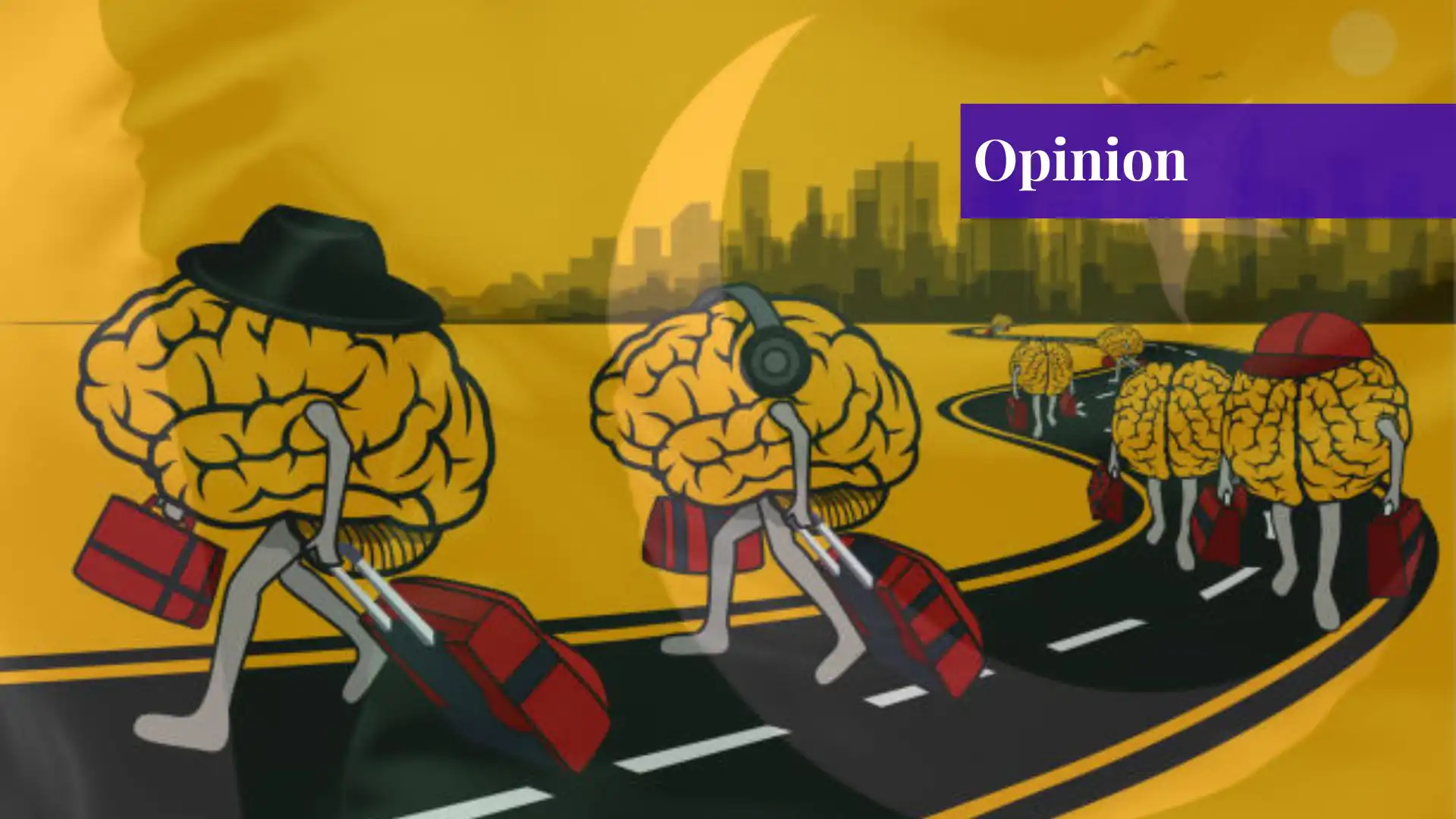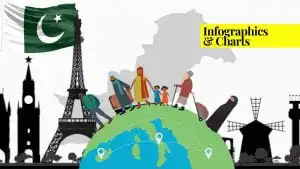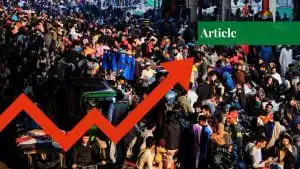Have you ever heard of or seen an “exponential gear train” system? If not then let me elaborate, it’s a gear system comprising of 100 or more gears. If you mobilize the first gear and let it complete the first rotation let’s say in 3 seconds, it will take 30 seconds for the second gear to complete its rotation. From the name, we can deduce why it is named “exponential.” Time taken by gears increases exponentially as we move to further connected gears.
The increase of time taken by each gear is such that it will take years for the last gear to complete its rotation. You might wonder why I am explaining this complex system. Students graduating from a university, or any other educational institute mirror the exponential gear train system to a significant extent.
Imagine, that one rotation of the very first gear represents the graduation of one individual. Just like in our exponential gear train, thousands of rotations of the first gear cause one rotation of the last gear of the system. Let’s say one rotation of the last gear represents the ongoing progress of a country. Progress here in this context can be defined by keeping up with the world. Up till now, we have established that in the modern world, any country needs thousands of graduates to keep up with the rest of the world.
It is an undeniable fact that advancement in any aspect, of any country, is not feasible without an educated public. Compared to developed states, Pakistan is a young country that has only existed for 77 years. With a lack of educated individuals, it was hard to construct a “graduate-friendly” environment i.e., employment for fresh graduates. Such an environment would be unarguably hard to create because if we go even one generation back, the number of university graduates would be less than half of what it is now. So, one can comfortably say that the previous generations were not educated enough to anticipate and maintain the pace of the current world. Pakistan cannot absorb its own product–in this context its graduates. With such circumstances, a country can’t avoid a “brain drain.”
In its origins, “brain drain” is a nationalistic concept that largely comprises anti-colonial sentiments. Individuals holding nationalistic positions will perceive the migration of educated professionals as a threat to the national interest. However, proponents of a cosmopolitan liberal point of view will see international migration of educated individuals as an overall beneficial process. According to the cosmopolitan liberal position, professional migration will increase the whole world’s output overall, as knowledge without any limitation or boundary will result in general benefit.
A liberal position might be acceptable if a country, from where individuals are migrating. is economically and politically stable. But what about those states experiencing serious economic dilemmas and ongoing political turmoil? What if a country has a literacy rate of 62%? What if 44% of the children between the ages of 5-14 are not attending school? In such circumstances, the pursuit of prosperity is impossible via a liberal position.
Here one can argue that educated individuals would be better off in a developed country rather than in Pakistan; however, it is difficult to say whether Pakistan is developing or underdeveloped.
In 2022, roughly 833,000 (highest since 2016) skilled individuals migrated from Pakistan for a better life. Among which 92,000 were graduates. If calculated, roughly 21% (given that 445,000 students graduated in 2022) left Pakistan for employment. This is only a small statistic for university graduates, we have not even touched upon the loss of human capital in the form of highly qualified workers. Joblessness has forced their hand.
If we just consider that graduates move abroad for better lifestyles and jobs, then it does not sound like much of a problem at all. Human capital is exchanged all around the world. However, while looking at the political and economic condition of Pakistan—one would know for a fact that people are leaving this country with shattered hopes. The exodus of such qualified and skilled people exhibits a sense of disappointment.
We have not been a strong and stable economy, at least not for the past 50 years. With every small economic turbulence, we run towards financial agencies such as the IMF or World Bank to rescue us, in exchange we get tougher conditions. These tough conditions may include sky-high inflation rates and interest rates. High inflation, low wages, and interest rates haunt the job market, small, and large businesses along with the public in general. Such conditions compel individuals to migrate.
Mass migration of young Pakistanis –– brain drain, can kill future prospects of the state. By using the Solow Growth Model, one can determine the impacts of the brain drain on the GDP growth of Pakistan. There are three simple factors to focus on i.e., capital accumulation, labor force, and technological advancement. In Pakistan, the brain drain can be expected to result in a reduction of economic growth potential by lowering the effective labor force, diminishing capital accumulation, and slowing down technological progress. This analysis, through the lens of the Solow Growth Model, suggests that brain drain is likely to have long-lasting negative effects on the country’s economic development unless countered by policies that enhance human capital retention, improve the productivity of the remaining workforce, and attract or maintain high levels of technological innovation.
For this to be avoided, there is no way other than creating incentives for the labor force. Incentives like job opportunities, higher salaries, or labor-friendly contracts, are crucial to retain human capital within borders. A liberal point of view might not be a beneficial one if we are to think about our national interest. It is not just about the person moving abroad, but rather more about the long-term effects it will have on a country. However, it is only possible if a state provides a sound environment for its subjects.
We are the only crew this ship has, and it’s up to us to keep it from sinking. It would be naïve to rely totally upon seasonal leaders and politicians to fix this economy. After all this country is ours, not theirs. If a catastrophe knocks on our door, these leaders and so-called saviors will be the first ones to flee, leaving us behind.
If you want to submit your articles, research papers, and book reviews, please check the Submissions page.
The views and opinions expressed in this article/paper are the author’s own and do not necessarily reflect the editorial position of Paradigm Shift.
Danial Waheed is a final year student at King's College London studying BSc. Philosophy Politics and Economics






